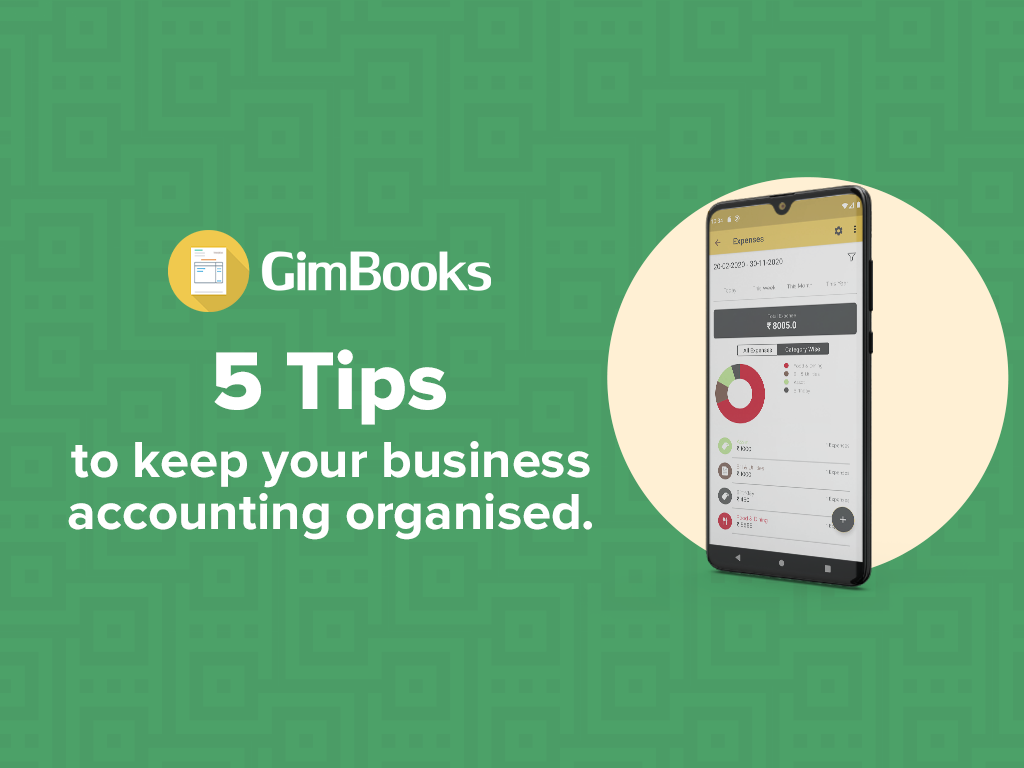Organising and managing your business activities is an extremely crucial role. Certain guidelines need to be set up to manage various business activities. This will be beneficial irrespective of the size or revenue of the business.
The amount of time and energy that you spend to organise the way you do your Business Accounting will help you save your time and provide you with clarity on how your business is performing.
With methodical and an organised approach, you can make timely decisions and see how your business is ready for further development and growth.
These 5 Tips can help even the smallest businesses achieve a well kept set of books and financial clarity.
- Separate Your Personal and Business Accounts
It is one of the most important points to manage your business finances in the most organised way possible. It will ensure that your tax overdraft, credit cards and checking accounts are separate and no tax related charges are affected. Hence, it will provide a clarity over tax-deductible expenses the business incurs.
- Maintain a Solid Accounts for Accounts Receivable and Account payables
To track your payments seamlessly, maintain continuous tracking for receivable and payables.
Account Receivables refers to the amount that the company will receive for its goods or services that were sold on credit & management of receivable is planning and controlling of debt owed to the customers on the account of credit sales. Till your sales are converted into sales, you need to manage how much you will be receiving - from where you will be receiving, how much - these questions will have a systematic answer when you manage and have a proper tracking system to keep your cash flow smooth by chasing up the payments.
While Account payables are short term liability. Keeping a track of account payables will ensure that the payments are not duplicating or being late to avoid additional charges.
- Avoid Cash Transactions
Why? Because Cash Transactions are hard to manage and track. It can be tedious to track the expenses that were paid in cash. Reconciling the cash outgoings with receipt can be time consuming and confusing. Thus, it is advised that the transaction should either take in digital payments or online banking services.
- Organize your paperwork Digitally
In this digital world, we have been blessed with a myriad of accounting softwares so that we can switch from manual filing and storing receipts, invoices and other financial paperwork to securely storing your books digitally.
Switching to Digital Accounting means you are having a good backup of your files instead of storing them physically and occupying a space in your premises. Also, it becomes easy to find and track the files that you are looking for without wasting time in searching for it.
- Invest in Accounting Software To Digitise your Company Data
Staying compliant with the latest technology will help in your business growth. Once you have a system in place for your digital documents, you can use cloud based accounting software such as GimBooks to keep your books up to date and store your document securely.
It allows you to cut down your paper clutter and securely store in the cloud and provide access to those you give permission to.
GimBooks allows you to:
- Create and share GST invoices & E-Way Bills with customers.
- Create Purchases, Inventory, Quotation, Expenses, Delivery Challans, E-way Bills, Payment receipts, purchase orders, Debit note, credit note and all business documents in one App - GimBooks
- Manage and check your Inventory instantly
- Manage and Track Purchase, Expenses and Ledgers
- Send Gentle Reminders to Customers
- Keep a live track of various business reports
- Make your GST filing simpler and faster
Ready to switch to online Book-keeping?
Start your free trial now
Also Read,
